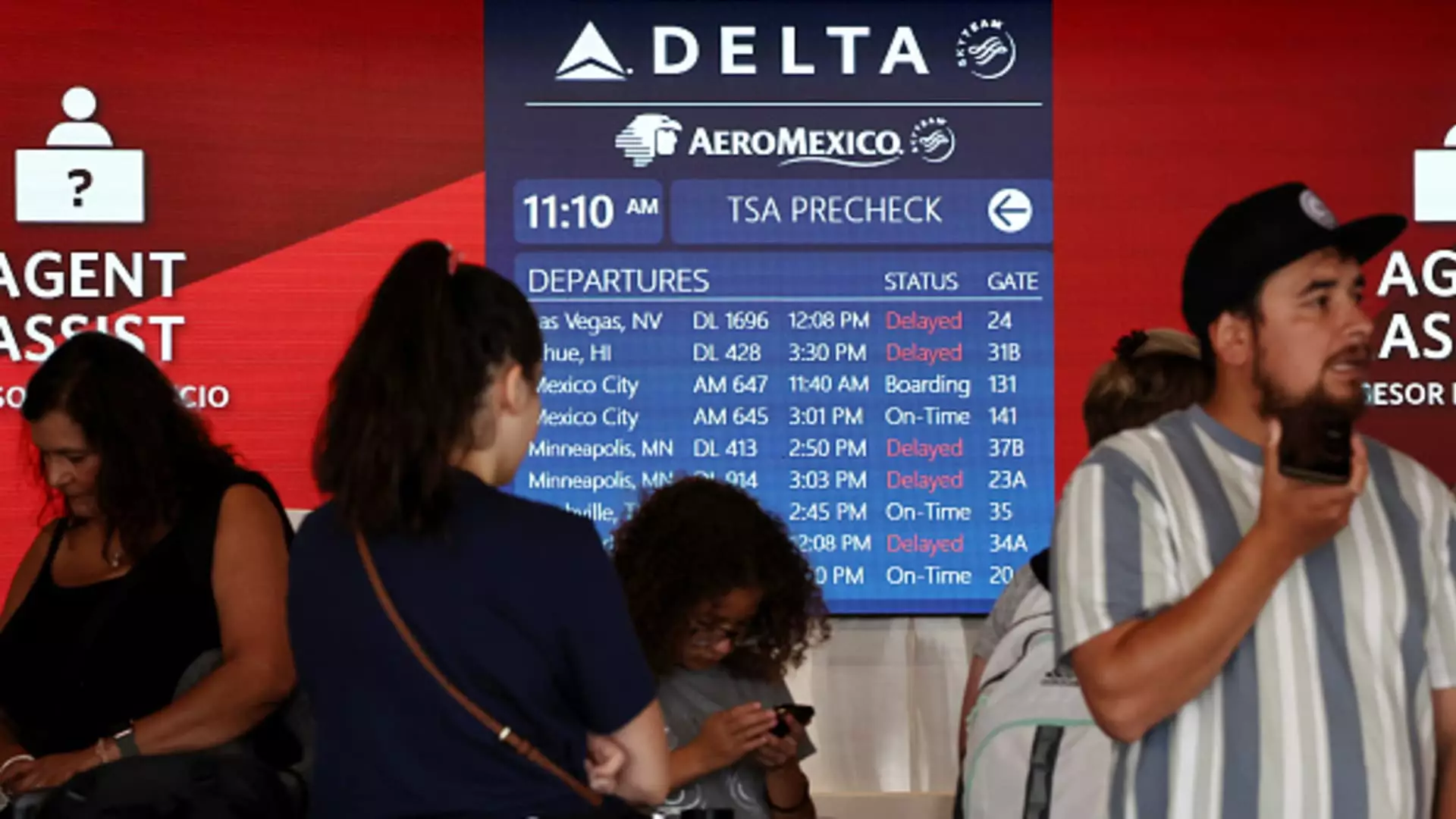In July 2023, Delta Air Lines faced an unprecedented technological crisis. A significant outage triggered the cancellation of over 5,000 flights, fundamentally disrupting operations at one of the busiest travel times of the year. The implications of such a failure were serious; it was reported that the financial repercussions could amount to approximately $500 million, including compensations offered to affected customers. The aviation industry is highly sensitive to technological functions, particularly during peak travel seasons, making the repercussions of this incident even more pronounced.
Delta’s CEO, Ed Bastian, publicly acknowledged that the airline had “no choice” but to seek damages against the companies involved, namely CrowdStrike and Microsoft. This move raises essential questions about corporate responsibility in the digital age. In his declaration during a CNBC interview, Bastian emphasized that Delta had engaged law firm Boies Schiller Flexner to initiate legal claims. These developments highlight a growing trend in corporate governance where companies begin to prioritize legal recourse over collaborative crisis management.
CrowdStrike’s legal representatives, however, challenged the narrative posed by Delta. Michael Carlinsky, a lawyer representing CrowdStrike, refuted the implication that they bore full responsibility for Delta’s technical failures. He noted that CEO George Kurtz had previously reached out to Bastian in an attempt to offer on-site assistance but received no reply. This incident raises critical concerns about communication and cooperation between technology providers and their clients in times of crisis.
The outage had severe ripple effects not just for Delta but also for CrowdStrike itself. Following the incident, the cybersecurity firm’s share value plunged over 36%, driven by investor backlash due to the extensive cancellations and operational failures experienced by Delta. The financial stakes for CrowdStrike are significant; investors are concerned not only with immediate financial decline but also with the long-term sustainability of a company that is deemed responsible for such a substantial outage.
Furthermore, CrowdStrike emphasized its commitment to thorough investigations and corrective measures. The company plans to implement phased software updates to mitigate risks of similar failures in the future. This proactive approach, however, could be overshadowed if Delta proceeds with its litigation, potentially pushing the narrative back to the question of accountability for technology failures.
If litigation proceeds, both companies will need to navigate public perception carefully. Carlinsky warned that Delta would have to justify its legal approach to the public and stakeholders amid CrowdStrike’s transparent response to the outage. The public relations component can’t be overlooked; companies in crisis often face intense scrutiny from both consumers and the media, influencing their market presence and operational viability.
Moreover, the case highlights a pivot in public expectations of corporate accountability. Customers now expect not only transparency but also a collaborative response to crisis management from both service providers and technology partners. This expectation could redefine relationships in the technology and airline sectors, as shared accountability becomes increasingly prevalent in the narrative.
The Delta outage serves as a crucial reminder of the intricately woven fabric of technology and corporate operations. As companies become more reliant on third-party technology providers, the need for coherent communication and mutual responsibility cannot be overstated. This incident underscores the imperative for both Delta and CrowdStrike to re-evaluate their operational strategies and crisis management frameworks.
Ultimately, whether Delta finds legal resolution or not, the lessons learned from this event will resonate across multiple industries, prompting corporations to reassess their technology partners and the systems in place to safeguard against technological failures. The aftermath of the incident is not just a corporate crisis but a significant case study on the evolving dynamics of responsibility in the digital landscape.


Leave a Reply